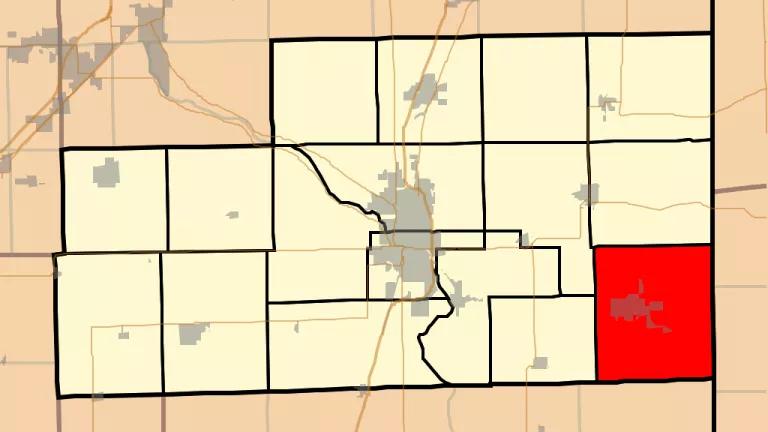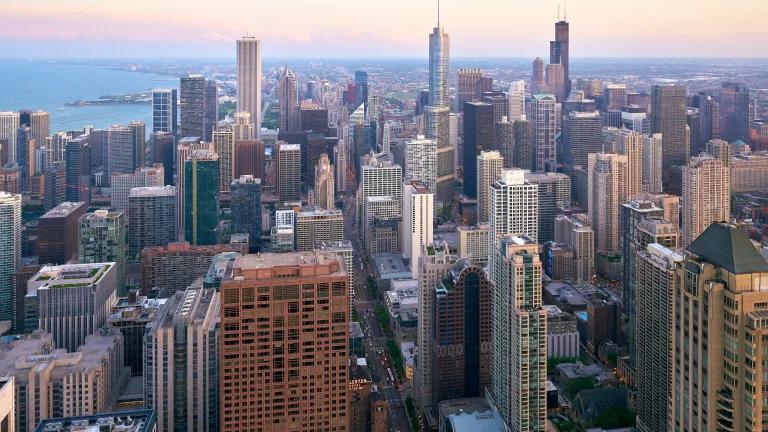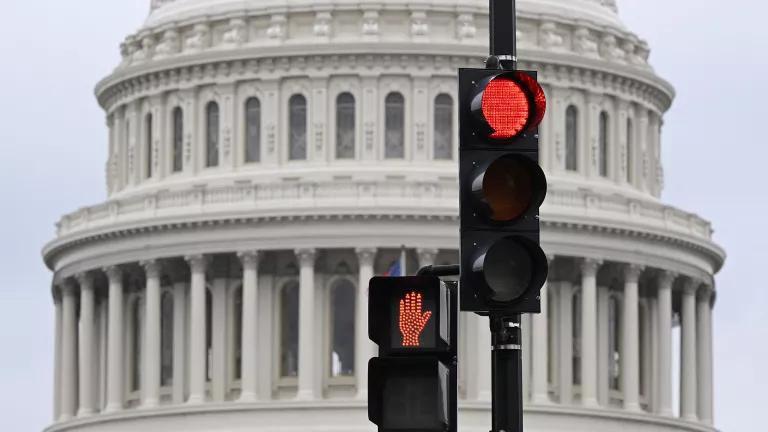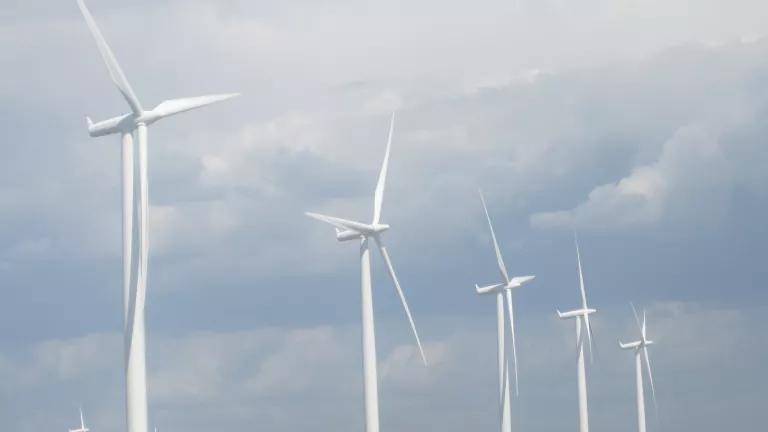Putting Pembroke’s Priorities Above a Gas Giveaway
Nicor Gas is currently pushing a gas line extension bill to foist costly and dangerous fossil fuel energy onto Pembroke—one of Illinois’s last remaining historical Black farming communities—for decades to come.

The Pembroke Township, located near the Indiana border, is one of Illinois's last Black farming communities.
Written following the leadership of and with input from Johari Cole from Iyabo Farms, Dr. Jifunza Wright-Carter from Black Oaks Center, and Cheryl Watson and Naomi Davis from Blacks in Green.
Nicor Gas is currently pushing a gas line extension bill to foist costly and dangerous fossil fuel energy onto Pembroke—one of Illinois’s last remaining historical Black farming communities—for decades to come. At a time when the rest of the state is shifting towards clean and healthy energy, Nicor’s proposal ignores the community’s stated needs and instead prioritizes utility profit over people. That’s why NRDC is supporting Pembroke residents like the farmers of Black Oaks Center and Iyabo Farms, their decarbonization partners Blacks in Green, and public policy advocates Illinois Environmental Council in opposing HB 3404/SB 2393.
Centering Community Needs
The Pembroke Township is a historically Black farming community south of Chicago and its Kankakee Sands are a world-renowned environmental treasure. Its residents have successfully fought off natural gas for over 40 years, committed to impeccable environmental stewardship, living closely to the land, and organizing for a renewable energy transition. Meanwhile they have chosen wood and propane for heat. They believe the Nicor natural gas option is an insufficient entry into the 21st century after decades of disinvestment: lack of broadband service, degrading water and sewer infrastructure, and complete lack of emergency responders. Community members have stated opposition to getting added to the gas system this late while the rest of the state—which has had gas access for decades now—is switching to cleaner efficient electric technology powered by renewable energy. Instead, in a sustainability plan which sought input from more than 100 residents, community members prioritized repairing homes, providing support for farmers, alternative energy and weatherization, creating recreational trails, and supporting cultural and environmental tourism as key needs. Pembroke should not be left behind once again by being burdened with a gas extension line.
The Downsides of Gas
Ignoring the needs and wants of the community, Nicor is trying to push fossil fuel infrastructure onto Pembroke leaving residents with an unhealthy and increasingly expensive energy source for decades to come. Burning gas releases harmful pollutants, such as nitrogen oxides, sulfur dioxide, and particulate matter, both indoors and outdoors. A meta-analysis found that, due to indoor air pollution, children living in homes with gas stoves were 42% more likely to experience asthma symptoms than children in homes with electric stoves. A recent study published by the Harvard T.H. Chan school of public health quantified the impact of outdoor air pollution from burning fossil fuels in buildings. In Illinois, the particulate matter emitted by buildings caused 1123 early deaths and $12.6 billion in health costs in 2017 alone. Nitrogen oxide and volatile organic compound emissions, two pollutants associated with gas, cost the state $2.8 million in health costs. These numbers underestimate the costs of gas, especially on human health, because they don’t account for exposure to indoor air pollution, additional pollutants like ozone, and health burdens beyond premature death like asthma.
In addition to damaging the health of our communities, the continued use of fossil fuels like gas promises to intensify the climate crisis. To avert catastrophic climate change and the subsequent devastating human impacts, we need to begin phasing out fossil fuels in buildings in favor of efficient electric appliances powered by clean energy. Those goals cannot be met if we continue to build out gas infrastructure.
Nicor’s True Intentions
Gas infrastructure is becoming increasingly obsolete as communities recognize the downsides of gas. With this proposal, Nicor aims to expand their consumer base. This means that as wealthy customers choose to electrify and stop using gas in their homes, communities like Pembroke are on the hook for paying for gas infrastructure for decades to come. Nicor is acting only in its own interests here.
Other regions of the country that don’t have gas and instead rely on delivered fuels like propane and wood (e.g., the similarly rural agricultural San Joaquin Valley in California and the Northeastern United States with its comparably chilly climate) are choosing to leapfrog over unhealthy gas, moving directly to cleaner, healthier electric alternatives. Nicor’s proposal denies the Pembroke Township the opportunity to the do the same.
This bill limits Pembroke to a dirty, unhealthy energy source for decades to come, benefiting Nicor Gas, less than 200 households, and a single potential business, while costing millions to unsuspecting Nicor customers and ignoring the voices of the Pembroke community in the process. Stand with Pembroke residents, their next generation farmers, and the organizations like Black Oaks Center, Blacks in Green, and the Illinois Environmental Council supporting them. Contact your elected representatives today to urge them to oppose HB 3404/SB 2393.



